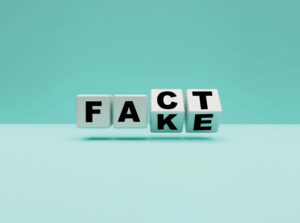False news is pervasive online—that much most people seem to agree on. What’s not so clear is our own ability to identify it, according to a new study from Ben Lyons, assistant professor of communication. He and his colleagues found that individuals who falsely believe they can identify false news are more likely to fall victim to it.
“Though Americans believe confusion caused by false news is extensive, relatively few indicate having seen or shared it,” says Lyons. “If people incorrectly see themselves as highly skilled at identifying false news, they may be more likely to consume, believe, and share it unwittingly, especially if it conforms to their worldview.”
Lyons and his colleagues used two large nationally representative surveys with a total of 8,285 respondents. Individuals were asked to evaluate a series of Facebook headlines and then rate their own abilities to discern false news content. Lyons used these two measures to assess overconfidence among respondents.
“Our results paint a worrying picture. Many people are simply unaware of their own vulnerability to misinformation,” says Lyons.
Most respondents—about 90 percent—reported they are above average in their ability to discern false and legitimate news headlines. Three in four individuals overestimated their ability.
“Using data measuring respondents’ online behavior, we show that those who overrate their ability more frequently visit websites known to spread false or misleading news, are less able to distinguish between true and false claims about current events, and report higher willingness to share false content.”




Comments
Comments are moderated, so there may be a slight delay. Those that are off-topic or deemed inappropriate may not be posted. Your email address will not be published. Required fields are marked with an asterisk (*).